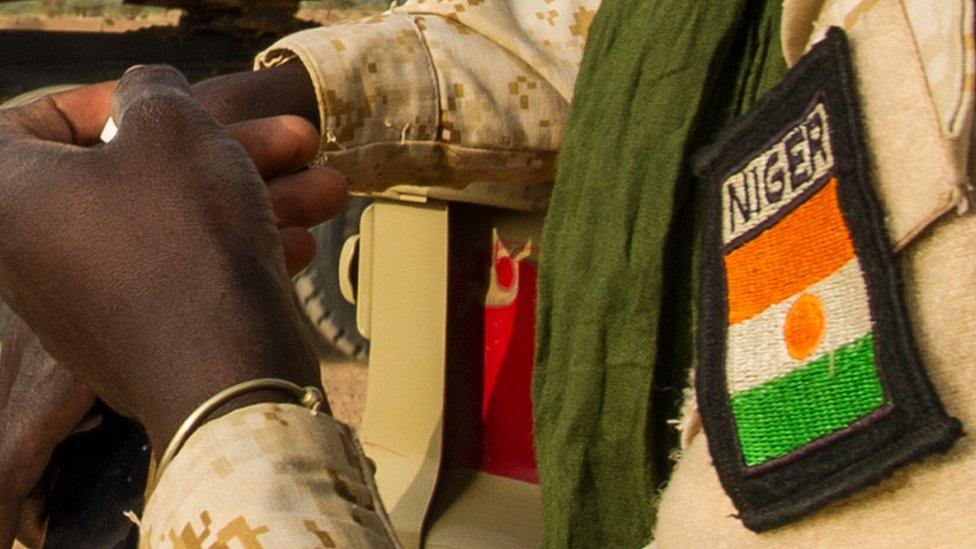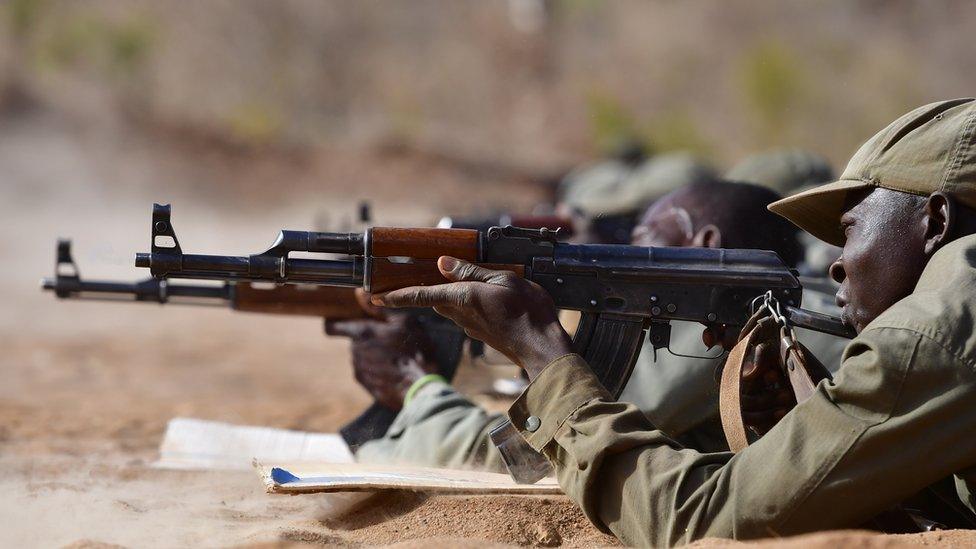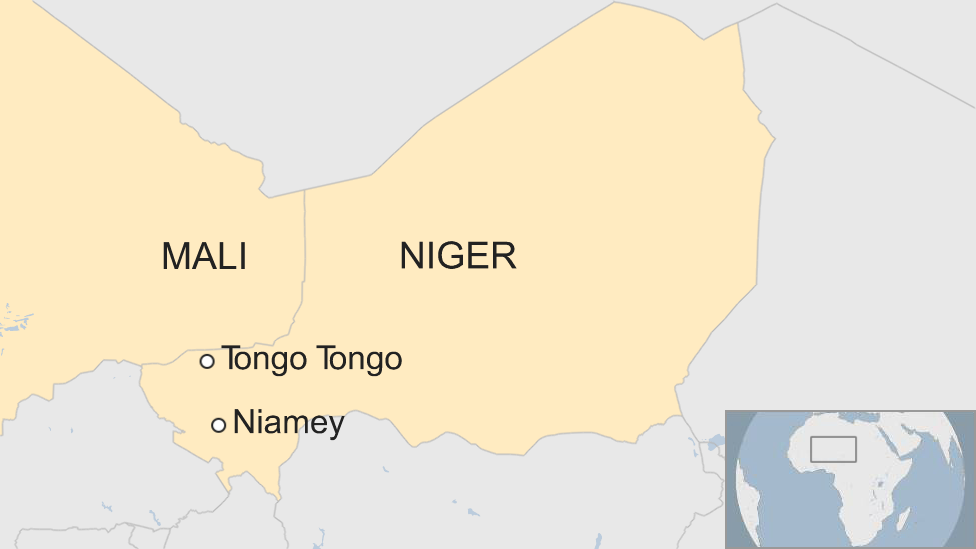Niger army base attack leaves at least 71 soldiers dead
- Published

Niger's army is struggling to contain the spread of armed groups
Militants have killed at least 71 soldiers in an attack on a military base in western Niger - the deadliest in several years.
Twelve soldiers were also injured in the attack in Inates, the army says.
No group has yet said it was behind the killings.
But militants linked to al-Qaeda and the Islamic State group (IS) have staged attacks in the Sahel region this year despite the presence of thousands of regional and foreign troops.
Security analysts say the insurgency in Niger is escalating at an alarming rate.
Defence Minister Issoufou Katambe told the BBC "a large number of terrorists" had been "neutralised" during the attack, which happened on Tuesday afternoon.
Mr Katambe said there had been "a fierce battle" with "several hundred" militants in Inates, not far from the border with Mali.

Local media also reported another attack on an army camp in Tahoua on Monday.
In October 2017, four US soldiers and five Nigerien soldiers were killed in a jihadist ambush in Tongo Tongo, a village near the Mali frontier, not far from the site of Tuesday's attack.
The Inates camp, near the border with Mali, was also attacked in July when 18 soldiers died.

Centre of the insurgency
Analysis by Louise Dewast, BBC West Africa correspondent
The security crisis in the region started in 2012 when separatist militants took over the northern part of Mali, triggering a French military intervention in the region to push them back. A peace deal was signed in 2015, but was not completely implemented, and new groups have since emerged and expanded to central Mali, Burkina Faso and Niger.
In particular, the Liptako-Gourma region, which is a stretch of land across all three nations, is now at the centre of the insurgency and counter-terrorism operations.
This is where Tuesday's attack happened. It's also where nearly 100 Malian soldiers have been killed by suspected militants since September, forcing them to retreat from their side of the border.
Illicit activities such as weapons, drug, motorcycle and fuel trafficking, cattle rustling, artisanal gold mining and poaching are key to the militant group's survival in the Liptako Gourma region, according to William Assanvo, senior researcher at the Institute for Security Studies.

How serious is the situation?
Earlier this week, Niger's government requested a three-month extension to a state of emergency, which was declared two years ago. Niger's army is struggling to contain the spread of armed groups.
In recent weeks, there have been increasingly bold attacks by militants.
Insurgents linked to al-Qaeda and IS operate on the country's northern borders with Mali and Libya, while the Boko Haram group is active on its south-eastern border with Nigeria.
The Inates attack came days ahead of a planned summit in France, where President Emmanuel Macron and five West African leaders were due to discuss security in the region.
But Mr Macron and Niger's President Mahamadou Issoufou have now said the summit will be postponed to early next year.
What it being done to counter the threat?
Niger is a member of the French-backed G5 Sahel group, a taskforce created by the region's leaders in 2014 which aims to fight the militants; it also includes Burkina Faso, Mali, Mauritania and Chad.
But despite the creation of this taskforce, and the presence of 4,500 French soldiers and more than 14,000 UN peacekeepers, this year has seen the jihadist groups step up their attacks in Mali and other countries in the region, including Niger.
Last month, 13 French soldiers died in Mali when two helicopters collided during an operation against jihadists there.

You may also be interested in:
What is behind Mali's massacres?
- Published27 November 2019

- Published16 May 2019
